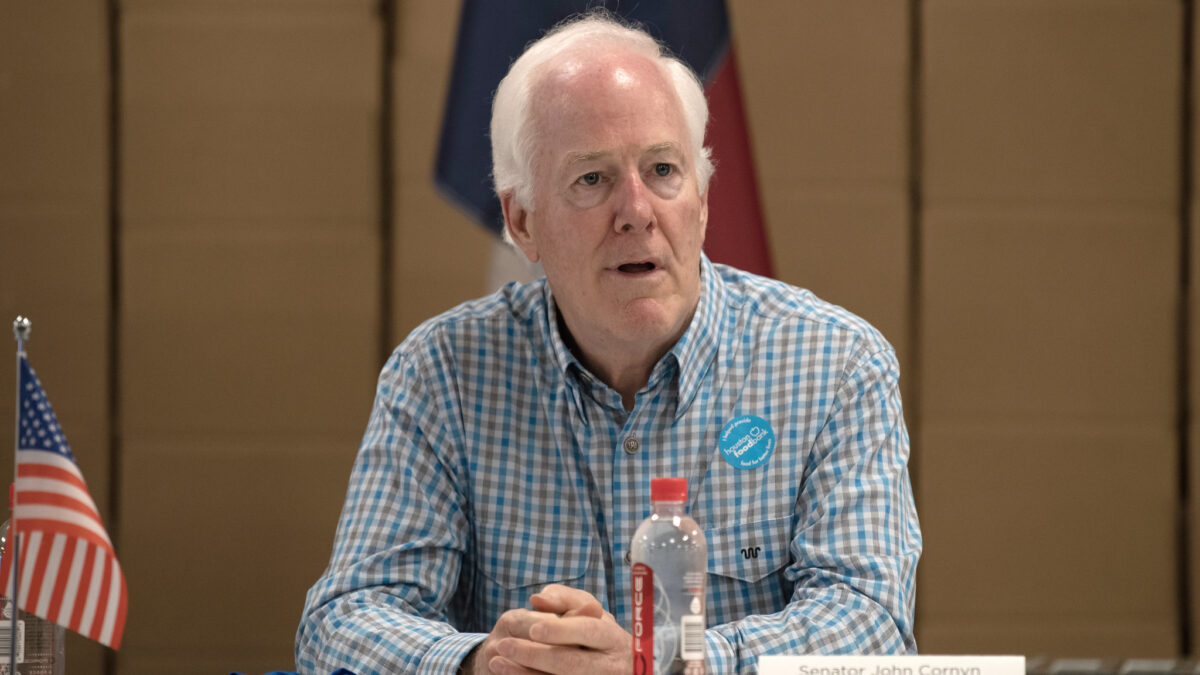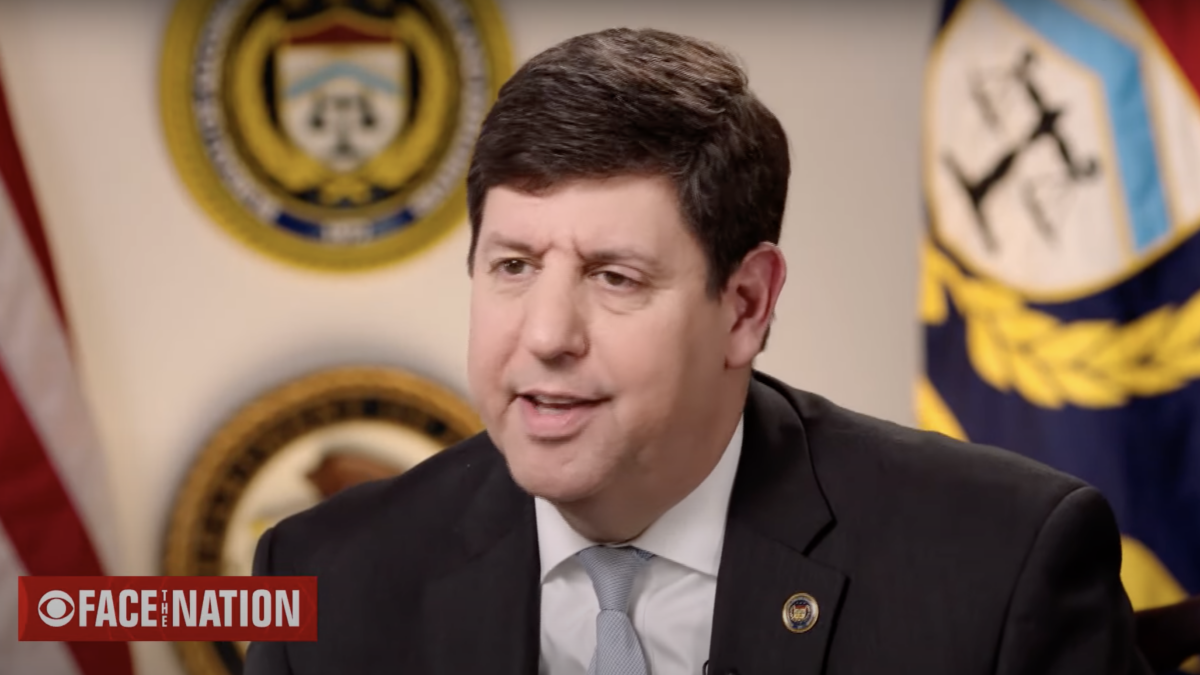
When something bad happens, some among the political opposition will be strongly inclined to blame it on the party in power. When Donald Trump is the leader of the party in power and the bad thing is a horrific crime committed with a gun, reactions among the #Resistance fall within a small range between “he bears some responsibility” and “he basically committed murder.”
So it is no surprise this week that Second Amendment opponents laid the blame for this tragedy at the door of the White House. Inaccurate, but predictable. What is less predictable is one way in which gun control advocates who should really know better are pushing out tweets like this one, from Vox’s Ezra Klein.
https://twitter.com/ezraklein/status/964154289479405568
The tweet links to a post by Vox’s Matt Ygleisias that frankly admits that the action Congress and the president took last year was not what the headline claims. But that’s buried way down in the story where almost no one will read it. The inaccurate headline, meanwhile, gets spread around Facebook and Twitter and generates that much-needed web traffic, at the expense of the truth. In other places, Facebook memes based on these assertions lack even that limited nuance.
But if what Vox and others are spreading is fake news, what is the truth? What really happened back in February 2017, and what does it have to do with the murders in Florida last week?
The tale begins in the waning days of the Obama administration, a time when lame duck presidents typically ram through ill-considered regulations so as to deprive the incoming president of the chance to do it his way. (HIPAA privacy regulations were enacted in this way in 2000, which is why they are so bad.) The rule being rammed through in this case was enacted under the authority of the Brady Bill, specifically under 18 U.S.C. §922(g), which states that “It shall be unlawful for any person…who has been adjudicated as a mental defective or who has been committed to a mental institution” to own a firearm.
So far, so good. One of the rare points of agreement between left and right on guns is that people with mental illness — especially the kind of mental illnesses that might make a person want to shoot up a crowd of innocent people — should not own or possess guns. The problem lies in how the Obama administration sought to identify these people.
Typically, being “adjudicated as a mental defective” requires, you know, adjudication. That makes sense. Lots of people are accused of having a mental defect. It happens millions of times a day on Twitter. But mere accusations are never sufficient to deprive people of their constitutionally protected rights. A plain reading of the language of the Brady Bill would imply some sort of due process rights — hence the word “adjudicated.” If someone has been held by a judge and jury to be mentally impaired, then by all means take away his guns. If not, he retains his Second Amendment rights along with all of the other rights of a free American adult.
The rulemakers at the Social Security Administration thought otherwise. In a rule promulgated on December 19, 2016, they determined that “adjudicated as a mental defective” also meant anyone who successfully filed a disability claim for mental health reasons and requested that someone else be appointed to help manage their disability payments.
What do those mental disorders include? It’s a long list! Some, like schizophrenia, sound like good reasons to keep firearms out of a person’s hands. Others sound decidedly less dangerous. Autism spectrum disorder, for example, does not appear to have any connection to gun violence. For others on the list, such as eating disorders, proposing a connection to a propensity for violence is laughable.
Nevertheless, Obama’s SSA believed that people who were, say, anorexic, and who asked for help managing their finances must be deprived of their constitutional rights. The SSA acknowledged that they received objections during the regulation’s notice-and-comment period, but dismissed them. To those who pointed out the due process problems, SSA replied that anyone whose rights were taken away could apply to get them back. Problem solved!
Deprivation of any other right would not be dismissed so cavalierly. Commenters also pointed out that the category of mental illnesses was “too broad, and equate ‘severe mental issues the same as other issues’ such as ‘eating and anxiety disorders.’” This, too, the SSA dismissed with nothing more than a promise not to abuse the power that they had delegated to themselves.
When the 115th Congress convened the month after this regulation was released, it joined the list of many regs that Republicans wished to disapprove under the Congressional Review Act of 1996. Many of those similarly disapproved were stricken for political reasons, out of a belief that excessive government regulation needlessly burdens individuals and businesses. With this SSA regulation, the motivation was simpler: it was just a terrible idea, poorly executed. The repeal passed both houses and President Trump signed it into law.
In their opposition, Republicans attracted a coalition of unlikely allies. The American Civil Liberties Union, not known for their extreme views on the Second Amendment, endorsed the action. In a press release before the vote, the ACLU condemned the rule, saying:
We oppose this rule because it advances and reinforces the harmful stereotype that people with mental disabilities, a vast and diverse group of citizens, are violent. There is no data to support a connection between the need for a representative payee to manage one’s Social Security disability benefits and a propensity toward gun violence. The rule further demonstrates the damaging phenomenon of “spread,” or the perception that a disabled individual with one area of impairment automatically has additional, negative and unrelated attributes. Here, the rule automatically conflates one disability-related characteristic, that is, difficulty managing money, with the inability to safely possess a firearm.
Other mental health advocates joined the ACLU in supporting the Republican bill. The National Disability Rights Network noted the “absence of any meaningful due process protections.” The Bazelon Center for Mental Health Law said that the rule “is inconsistent with the statute it implements, has no evidentiary justification, would wrongly perpetuate inaccurate stereotypes of individuals with mental disabilities as dangerous, and would divert already too-scarce SSA resources.” And the National Alliance on Mental Illness said the rule “may have unintended negative consequences, including deterring individuals from seeking or receiving help when they need it.”
None of this sounds like the unhinged lawlessness that Vox and other left-leaning publications attribute to the Trump administration. Instead, Congress’s repeal of the regulation came after consultation with a cross-section of advocacy groups whose missions are to protect a vulnerable group of Americans. The SSA rule was overboard and underprotective of our constitutional rights. Congress listened to the people’s complaints and repealed it. This was not a dark conspiracy: it was the system working.









